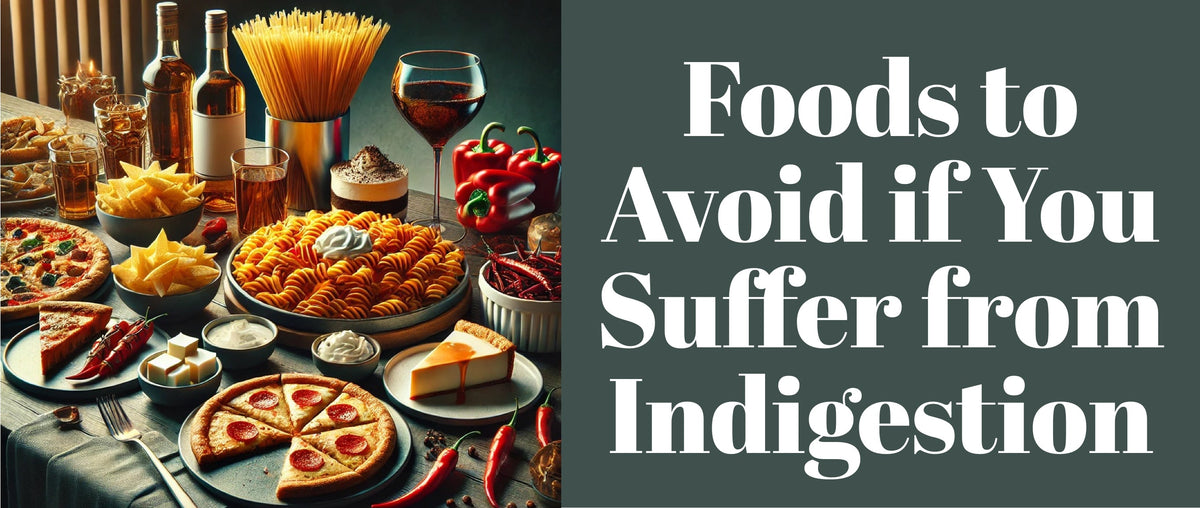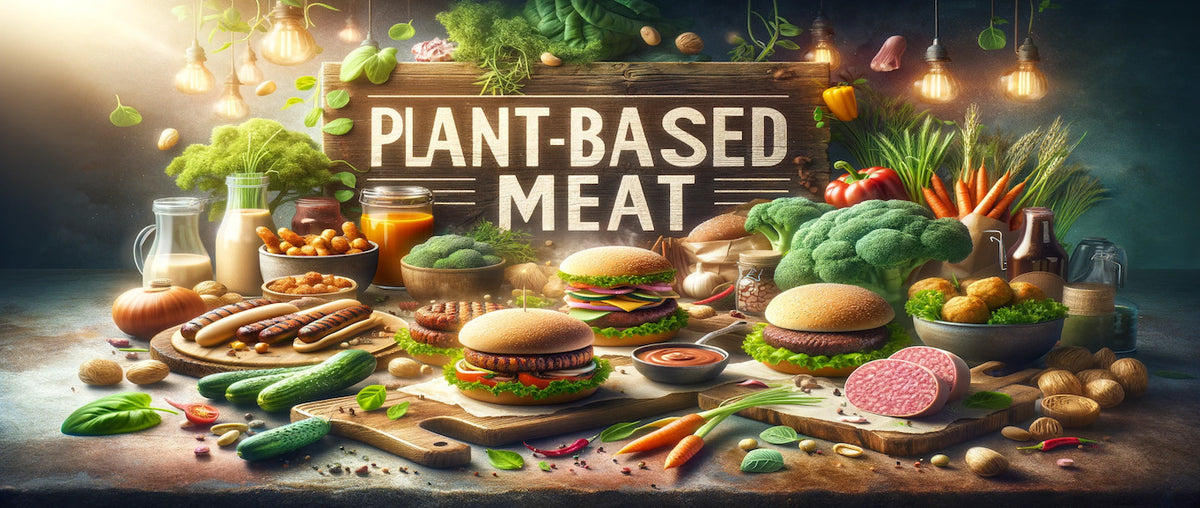Indigestion
Indigestion, also known as dyspepsia, is a common condition that causes discomfort in the upper abdomen. From bloating and heartburn to nausea, its symptoms can be frustrating and even debilitating for some individuals. While there are many potential causes of indigestion, dietary habits play a critical role in triggering or alleviating symptoms. This guide explores the foods to avoid if you suffer from indigestion and provides insights into making better dietary choices for a healthier digestive system.
Key Takeaways
- Indigestion can be caused by high-fat, spicy, or processed foods, among others.
- Opting for cholesterol-free foods like a Vegan diet can alleviate symptoms.
- Incorporating alternatives like oat milk, Vegan butter, or plant-based cheese can support digestive health.
- Simple lifestyle changes like consuming Kombucha or an Apple Cider Vinegar Drink can aid digestion naturally.
What is Indigestion?
Indigestion refers to a group of symptoms that arise due to improper digestion. Common signs include:
- Bloating or a feeling of fullness after eating.
- Burning sensation in the stomach or chest.
- Nausea and belching.
Common Causes of Indigestion
Several factors can contribute to indigestion, including:
- Unhealthy dietary choices: High-fat meals and processed foods can slow digestion.
- Lifestyle habits: Overeating, eating late at night, or excessive caffeine intake.
- Medical conditions: GERD, irritable bowel syndrome (IBS), or peptic ulcers.
Choosing a cholesterol-free diet with options like Unsalted butter, low-fat butter, or Vegan items can help reduce the burden on your digestive system.

Foods That Commonly Trigger Indigestion
1. High-Fat Foods
Why They Cause Issues:
Fatty foods slow the digestive process, leading to bloating and discomfort. They can also increase the likelihood of acid reflux, worsening symptoms of indigestion.
Examples to Avoid:
- Fried foods such as French fries or fried chicken.
- Fatty cuts of meat like pork belly.
- Full-fat dairy products like cream and cheese.
Healthier Alternatives:
Switch to Vegan butter, fat-free butter, or Unsalted butter. For cheese lovers, plant-based cheese or unprocessed cheese is a better choice. If you love baking, consider using Cashew Butter for its creamy texture and nutrient profile.
2. Spicy Foods
Why They Cause Issues:
The capsaicin in spicy foods can irritate the stomach lining, making symptoms like nausea or acid reflux worse.
Examples to Avoid:
- Hot sauces made with chili peppers.
- Spicy curries and dishes rich in chili powder.
Healthier Alternatives:
Use herbs and mild spices like garlic or ginger for flavor. Pair these with options like garlic butter or dairy-free cheese for a lighter meal.
3. Processed and Preserved Foods
Why They Cause Issues:
Processed foods often contain high levels of salt, sugar, and unhealthy fats, which can delay digestion and contribute to bloating.
Examples to Avoid:
- Packaged snacks such as chips and crackers.
- Processed meats like sausages and hot dogs.
- Pre-packaged frozen meals.
Healthier Alternatives:
Opt for homemade meals with Vegan products like Vegan cheese. If you’re looking for pizza toppings, consider the Best mozzarella cheese for pizza or a Mozzarella cheese block from vegan options available online.
Healthier Choices to Improve Digestion
Incorporate Vegan Alternatives
Switching to a Vegan diet not only reduces the risk of indigestion but also supports overall health. Here are some great substitutions:
- Vegan butter instead of traditional butter for cooking and baking.
- Cashew butter or garlic butter as spreads and flavor enhancers.
- Fat-free butter or low-fat butter to keep meals light.
Include Gut-Healthy Foods
Certain foods can aid digestion and prevent discomfort:
- Kombucha India: This fermented tea is rich in probiotics that enhance gut flora.
- Apple cider vinegar drinks: Known for balancing stomach acidity and improving digestion.
- Unprocessed cheese: Easier to digest and less likely to cause irritation.
Tips for Managing Indigestion
- Eat smaller, more frequent meals instead of heavy portions.
- Avoid lying down immediately after eating; wait at least two hours.
- Drink plenty of water throughout the day to aid digestion.
- Consider plant-based alternatives like Vegan items or Vegan products, which are easier on the digestive system.
Conclusion
Indigestion can often be managed by avoiding trigger foods and making simple dietary adjustments. By replacing high-fat, processed, and acidic options with healthier alternatives like Vegan cheese, Unsalted butter, and oat milk, you can support your digestive health and enjoy your meals without discomfort.
For those transitioning to a plant-based diet, consider trying Vegan items like the Best mozzarella cheese for pizza or Parmesan cheese alternatives to maintain flavor without compromising on digestion.
Remember, a balanced diet rich in cholesterol-free foods, probiotics, and alkaline options can make all the difference in managing indigestion effectively.
Do you enjoy vegan food? We have a list of vegan restaurants in India to help you find delicious options in your area!










